So, how do you determine the greatest abilities to include on your resume? Let’s dive into it.
Hard Skills vs. Soft Skills on Your Resume
There are numerous abilities that can be included on a resume or resume profile, and you must select which ones will be most beneficial. Every job requires both hard technical abilities unique to the industry and soft talents.
Hard skills are technical abilities that are unique to a given job and are frequently quantified. Software developers’ hard skills would include certain programming languages. Soft talents are personal or creative abilities that can be acquired naturally or developed over time. Some examples of soft talents are adaptability, self-motivation, interpersonal skills, time management, and the capacity to operate under pressure.
Quantifying your skills on your resume
In order to effectively showcase the tangible impact of one’s skills and contributions, individuals should quantify their achievements on their resumes. By providing measurable results and quantifiable outcomes, applicants enable prospective employers to clearly discern the value they have added to previous roles, thereby demonstrating their capacity to make meaningful contributions to the success and growth of the company.
Top Soft Skills for Your Resume
There are numerous soft skills that you can add to your resume, but how do you choose which ones to include? Here is a fast list of soft skills examples to include on your resume.
Problem-solving skills
No matter what work you have, something will go wrong at some point, and employers want to know that you can find a speedy and efficient solution. In reality, some careers consist only of addressing problems for the organization, the clients, or both.
Quantification Example: Implemented a new troubleshooting process that reduced customer complaint resolution time by 20%.
Critical Thinking Skills
The ability to think clearly and thoughtfully is the foundation of critical thinking. Employers seek employees who can think through a problem or project and choose the best course of action. Critical thinkers come up with new and better methods to work, making it a desirable ability to include on your CV.
Quantification Example: Developed and executed a streamlined project plan, resulting in a 15% increase in team efficiency.
Flexibility
Many organizations and sectors seek personnel who are dynamic and adaptable to any environment, or who have a natural ability to use a range of tactics and approaches in diverse situations to achieve the best possible outcome.
Quantification Example: Adapted to changing project scopes, ensuring timely completion and earning praise from project stakeholders.
Teamwork
Most jobs will demand you to collaborate with others at some point, and employers want to know that you can thrive in a team setting. Some jobs will prioritize this expertise over others.
Quantification Example: Collaborated with cross-functional teams to achieve project goals, contributing to a 10% improvement in overall team performance.
Communication Skills
Whether written or spoken, being able to communicate with your boss, coworkers, and clients/customers in all scenarios is extremely valuable. The better you are at it, the greater your outcomes will be.
Quantification Example: Enhanced client communication, leading to a 15% increase in customer satisfaction ratings.
Top Hard Skills for Your Resume
Hard skills are typically more technical, and each industry or job type will have its own set of requirements. It may be necessary to conduct some research to determine the variety of hard skills that will be required in your field. Here are some instances of hard skills that are in high demand across several industries.
Digital Skills.
The number of professions that do not require the usage of computers or specific types of software is quite small. You might most likely divide “digital skills” into two or three particular technical competencies for your field. The majority of jobs demand prior familiarity with video meeting software, project management systems, and other business-related technologies.
Quantification Example: Implemented a new project management system, resulting in a 30% reduction in project completion time.
Data Analysis.
Understand that data is quite popular right now, and there are many positions out there where you will be required to analyze metrics and infer practical applications from them, making analytical skills extremely valuable to include on your CV.
Quantification Example: Utilized data analytics tools to identify cost-saving opportunities, leading to a 10% reduction in operational expenses.
Foreign languages.
Being bilingual can be a valuable hard talent that distinguishes you from your competitors. Even if a position or firm does not originally require a bilingual employee, they may value your skills. It is typical to need someone fluent in another language to assist consumers or clients, therefore include this expertise on your CV.
Quantification Example: Facilitated seamless communication with international clients, contributing to a 25% increase in global sales.
Administrative
Even if your position does not require administrative duties, they are most certainly part of your responsibilities. Administrative abilities include the tasks you perform to manage your function, such as organizing, planning, scheduling, composing emails, and managing files. Employers want to know you can handle the details.
Quantification Example: Enhanced office efficiency by reorganizing filing systems, reducing document retrieval time by 15%.
Writing Skills
Many vocations require writing. Whether writing to clients or coworkers, basic writing skills are essential and should be included on your CV. Emails with typos and grammatical problems will not reflect well on you, and a poor tone can convey an incorrect message. Demonstrate this talent in your cover letter and emails to the recruiter, and include any specific writing-intensive projects you’ve undertaken.
Quantification Example: Produced client-facing reports with zero grammatical errors, improving the professional image and credibility of the company.
How to List Skills on Your Resume or CV
Sort Skills by Relevance.
If you are seeking a hospitality position, your previous expertise as a car technician is not particularly helpful. You should emphasize experience and significant abilities that are relevant to a hospitality career. However, if you lack experience, go through your current positions for related talents.
For example, if you were responsible for customer care as a front desk agent, that experience can be transferred to another hospitality position.
Categorize by skill
If you are at a higher level in your profession, you are most likely responsible for many platforms or divisions. As a manager or director of operations at a company, your responsibilities may include managing staff, ensuring smooth daily operations, dealing with important stakeholders and/or vendors, designing and managing projects, and hiring and training employees.
You can divide your task-related information or achievements into parts to demonstrate the range of your responsibilities.
Add a highlights section.
Modern resumes are designed to be value-oriented, which necessitates delivering information that is more achievement-based rather than task-based. If you’ve held various roles with varying accomplishments, choose the top four you’re most proud of and include them in your Career Highlights section.
Try not to include more than four because this section is supposed to highlight your accomplishments, and you don’t want to construct sections with extensive lists of bullet points, which will make reading content very uninteresting.
In the ever-evolving landscape of job applications, a modern resume should not only be informative but also engaging. Strike a balance between showcasing your accomplishments and maintaining readability. Remember, less is often more when it comes to presenting your skills. Craft a narrative that invites the reader to envision the value you bring to their team.
In conclusion, your resume is not merely a document; it is a narrative of your professional journey, a story told through the language of skills. By artfully blending hard and soft skills, you create a compelling story that captivates employers and positions you as the candidate they’ve been searching for. So, go ahead, infuse your resume with the perfect blend of technical prowess and personal finesse, and watch as your career narrative unfolds in the most captivating way possible.

